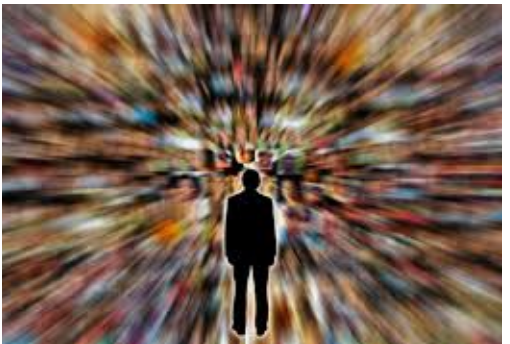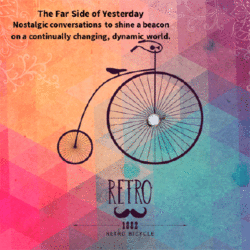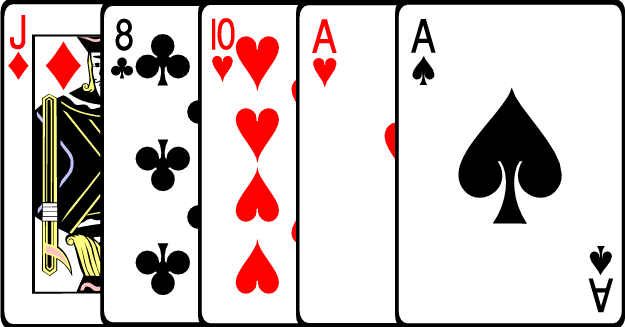Psychologist
Naomi Eisenberger’s interest in the emotional life of the brain, revealed a greater
connection between physical and emotional pain than commonly supposed. Her
landmark experiment studied how being excluded as a player in CyberBall, a
computer-controlled virtual-reality game, created “social pain” as a result of
rejection.
They found that being socially rejected activated the same nerve cells that
process physical injury and generate what we know as pain. Even trivial slights
become a source of irritation.
In other words, rejection actually hurts.
Dr. Eisenberger’s study confirmed it, but it is not news to me or many of my
readers, that a broken heart hurts as much as a broken arm.
The logical follow-up study was to determine if a painkiller like Tylenol relieved
a heartache. The experiment showed the Tylenol group reported less distress and
less brain activity in the pain regions after being rejected than the placebo
group.
But don’t get your hopes up. It isn’t that easy. For one, you would need to pop
a pill every time the world rebukes you. That’s a lot of Tylenol!
It is remarkable how readily rejection leaks from our emotional lives into our
physical lives. So much so, that inquiring
scientists have begun to reevaluate the cause between sickness and health, living
a long life or dying early.
In essence, what is the impact of social inequalities on our bodies and brains?
It would not be unexpected to target the current societal unrest as a prime
offender. But most likely, social pain triggers an evolved ancient pain
response calculated to keep you alive.
Historically, we depended on social relationships for survival. Food gathering,
nurturing, hunting, protection against predators and enemies demanded close and
trusted social interaction.
Scientists postulate that the pain of rejection evolved from the need to signal
a threat to our lives. Astute and wily nature plagiarized the existing
mechanism for physical pain rather than start from scratch. The upshot is that
broken bones and broken hearts became intimately interconnected in our brains.
Despite an intuitive expectation that the more significant the rejection, the
stronger the ensuing pain, something else occurs when we get rejected that
sheds light not only our struggle for acceptance but the longing desperation
that accompanies it.
Rejected people may become emotionally numb, a phenomenon called ego-shock, that
is equivalent to the physical numbness that can follow injury. For example, if
you cut your finger slicing carrots, you feel nothing at first, as your body seems
to shut down to protect you against the pain. Similarly, your consciousness can
freeze up to guard against the assault of emotional pain.
Rejection then sometimes goes beyond hurt, leaving us unable to feel anything
at all. These moments of shock are usually short-lived, but point out a mostly concealed
fact.
People are not merely social animals. We not only live with others but we
also live through them and in them. Our identity exists because others
see us. What we see is what they see, or what we suppose they see.
When they turn away, we become unseen and for all intents and purposes, cease
to be.
Rejection is often overt but in its insidious forms, it skulks inside the very makeup
of society.
In an interview for Radio Boston in 2012, Jerome Kagan, a psychologist at
Harvard University, and a pioneer in child development and personality studies,
said: ‘The best predictor today in Europe or North America of who will be
depressed is not a gene and it’s not a measure of your brain; it’s whether
you’re poor.’
But incapacitating as poverty is, there is more to the story. Mounting evidence
over the past decades indicatethat the
lower your status at work, the shorter your life. (The Role of Psychosocial Processes in Explaining the Gradient Between
Socioeconomic Status and Health; Nancy E. Adler Alana Conner Snibbe)
The counter claim is that socioeconomic status is not the cause of poor health,
but that unhealthy people, drift to the bottom of the social ladder. However, this
drift does not clarify the well-documented pattern that more unequal societies,
with steeper social hierarchies and bigger status differences, exhibit worse
health outcomes.
The culprit appears to be something about our social position.
The inequality researchers Richard Wilkinson and Kate Pickett (The Spirit Level; 2009) call it status
anxiety, because social status carries an implicit judgment of one’s value to
society. The farther up the ladder you climb, the more respect and admiration
you command from those around you.
It follows that being lower in the hierarchy implies a failure to live up to
society’s standards of success. Judged as lacking and inferior, you are subtly
rejected.
Thus, if you find yourself near the bottom, you may feel worthless, hopeless
and helpless.
More alarming, threats to our social identity go beyond emotions, tampering
with critical neurobiological systems such as the immune system that is linked to
diabetes, cardiovascular disease, some cancers, Alzheimer’s, arthritis,
depression and others.
The social rejection that pervades low status helps explain that elusive link
between poor health and social inequalities.
The troubling truth about social status is that it’s relative, having less to
do with your actual circumstances than your relative position to everyone else
on the social ladder. Predictably, this ranking produces more losers than
winners, not unlike sports, where second best is never good enough.
Social climbing doesn’t necessarily solve the problem. It often raises the bar.
Gazing down haughtily from the top rung, it occurs to you that you are now a
member of a new social group.
Regardless of what you achieve, there is always someone above you. Status, then
is not a winnable game because the target keeps moving and each success is also
a failure.
Every winner is a loser.
Are we doomed?
While it seems like eradicating hierarchies is contrary to human nature, they
can be flattened by creating more equality. Greater equality dissolves the
boundaries between groups, promotes social mixing and assimilation. It lessens
the probability of social isolation, a leading cause of death and disabilities
worldwide.
Social isolation acutely affects the elderly as they retire, suffer loss of
family members, hand over the car keys, become ill or too frail to take part in
social activities. A number of studies shows that as many as 50% of over-80s
report social isolation.
Belonging to a social network is crucial to motivating and incentivizing them
to take better care of themselves. However, be aware that being alone is
not the same as feeling alone.
People can be rejected and become social outcasts in their own mind even if
they live among others. The quality of their connections is important.
We must face the truth that it is often in our minds that rejection is most treacherous.
It is not in the stabs of pain it sends through our heads, nor in the turmoil
it inflicts on our bodies. Rejection can live on in the mind, nurtured by our
own distorted imaginations.
To identify yourself as isolated preordains you to be rejected over and over, even
if no one is snubbing you.
You are both the one who rejects and the one rejected. Rejection hurts us most by
making us complicit in its brutality.
Here is my quick fix suggestion when you see or know someone that is feeling
rejected or isolated today or any day:
Give
them your best hug. It will help.
Nobody gets through life without
experiencing some form of rejection, which is why everybody knows how awful it
feels. ~ Adena Friedman






